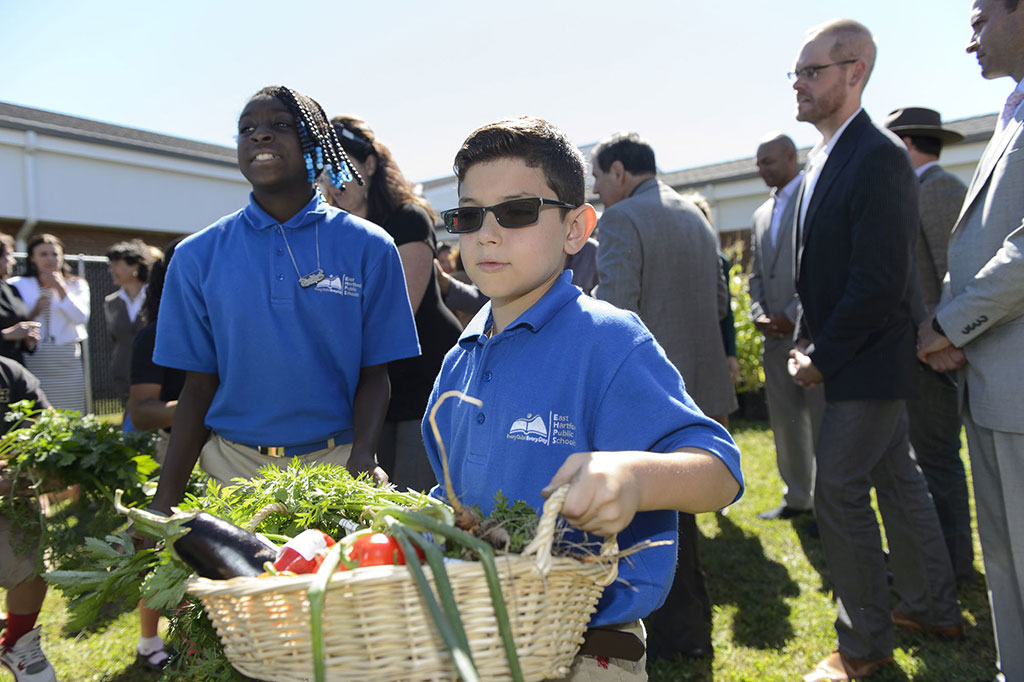Editor’s Note: The following excerpt comes from an article — titled “Food Justice: Access, Equity, and Sustainability for Healthy Students and Communities” — co-authored by Neag School associate clinical professor René Roselle and first-year educational leadership doctoral student Chelsea Connery ’13 (ED), ’14 MA, who is also an alum of the Neag School Integrated Bachelor’s/Master’s (IB/M) program. In this piece, Roselle and Connery examine the issue of food insecurity and its impact on student achievement, touching on an example of one Connecticut city that is working toward a solution.

The article originally appeared in the Oct.-Dec. 2016 issue of peer-reviewed journal Kappa Delta Pi Record. Access the original article in full, for free, via the Taylor & Francis website.
To sustain our democracy and promote social justice, we must focus on the serious issue of food insecurity in the United States. …
The United States Department of Agriculture defined food insecurity as “the absence of sufficient food for a healthy and active lifestyle for all household members and existing food that does not meet nutritional requirements.” The food insecure population increased sharply from 11.1 percent of households in 2007 to 14.6 percent in 2008 and has been greater than 14 percent ever since (U.S. Department of Agriculture, 2014). …
“Good nutrition is vitally important in constructing a solid foundation that impacts a child’s future physical and mental health, academic achievement, and economic productivity.” René Roselle, associate clinical professor, and Chelsea Connery ’13 (ED), ’14 MA, doctoral student
Good nutrition is vitally important in constructing a solid foundation that impacts a child’s future physical and mental health, academic achievement, and economic productivity. Children, more than any other population, need access to healthy foods to fuel their developing brains and bodies and to support their performance in school. Undernourished students may be more irritable, have difficulty concentrating, have lower energy levels, and get sick more often. Failing to provide children with good nutrition puts them at risk for not being able to meet their full potential. In addition, children who experience food insecurity may be at higher risk for truancy, behavioral issues, and social difficulties. …
If the health of our democracy is directly tied to the health of our public schools … it only follows that the nutritional health of our children and their access to healthy foods should be part of the current social justice conversations.
Citation: René Roselle & Chelsea Connery (2016) Food Justice: Access, Equity, and Sustainability for Healthy Students and Communities, Kappa Delta Pi Record, 52:4, 174-177, DOI: 10.1080/00228958.2016.1223993
 Facebook
Facebook
 Twitter
Twitter
 LinkedIn
LinkedIn
